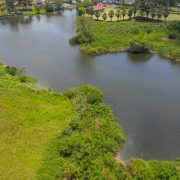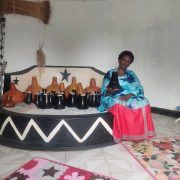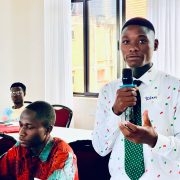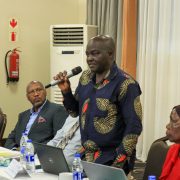Conservationists asked to integrate culture in their interventions to conserve the chimpanzee
- 4 years Ago
- 4 Min Read
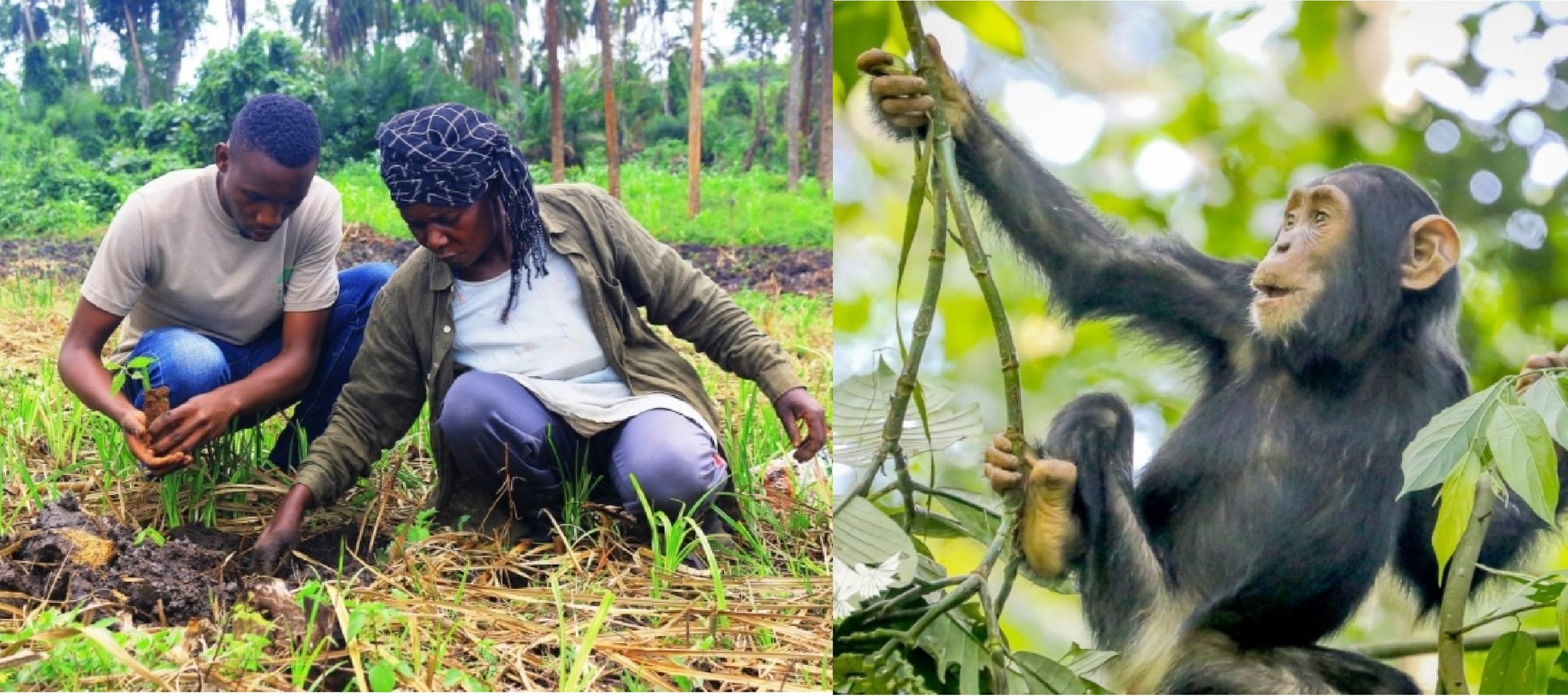
The 3rd National Stakeholders’ Dialogue on Culture and the Conservation of the chimpanzee
The 3rd National Stakeholders’ Dialogue on Culture and the Conservation of the chimpanzee was held in Hoima on 19th May 2022 to a. To discuss strategies for forest corridor restoration in Bunyoro; b. To discuss the progress, challenges and emerging lessons for collaborative conservation of chimpanzees outside protected areas, especially using community resources; c. To share experiences on indigenous and fruit tree; Planting in both private and forest reserves for chimpanzee conservation; d. To provide a platform for networking between national and grassroots chimpanzee conservationists.
Participants at the stakeholders’ dialogue
About 62 participants attended the national dialogue, with a diverse representation of Private Forest Owners (PFOs), CSOs (Wildlife Conservation Society, Jane Goodall Institute, Bulindi Chimpanzee and Community Project, Friends of Chimpanzee Family, Fauna and Flora International [FFI], Budongo Conservation Field Station, Bunyoro Tourism and Conservation Project among others), Government agencies (National Forestry Authority, Uganda Wildlife Authority, and Local Governments), media, cultural leaders, and Youth.
Key issues discussed at the chimpanzee conservation dialogue
The dialogue was held at a time when the concern for increased forest destruction and chimpanzee harassment was immense, especially in Bunyoro. Clearing of habitat for agriculture. Paul Hatanga of WCS presented on critical challenges in regard to chimpanzee conservation, including converting natural forest areas to plantation forest (for example in the period 2010-2015 and 2015 -2020, about 260,000 ha and 90,000 ha respectively were converted from forests to subsistence agriculture (75% and 62% respectively), increased human pressure on forests – most of the buffer areas have been cultivated, illegal activities within the forest, causing forest degradation, increase of habitat fragmentation due to infrastructure development, especially road construction and mining in Kalinzu.
Discussing collective strategies for chimpanzee conservation
Key strategies and potential collective activities to promote chimpanzee conservation were discussed in various presentations including incorporating indigenous knowledge in chimpanzee habit restoration projects, reducing fragmentation and loss of key chimpanzee habitat, drawing strategies to reduce conflict between local communities and chimpanzees, promote awareness of the value of chimpanzees (including among policy & law makers), reduce levels of human caused deaths, injuries and the pet trade, enhance corporate social responsibility where it affects chimpanzees and minimize the potential risk of disease spread. The take over of Bugoma Forest by the Uganda Wildlife Authority was also mooted.
The National Chimpanzee Strategic Action planning is underway, colleagues were requested to participate.
The dialogue presented opportunities for sharing among grassroots, including Private Forest Owners, youth, cultural leaders and national stakeholders for strategic forest corridor restoration and chimpanzee protection and drawing concrete discussions
A radio talkshow was held involving UWA, CCFU and Kinyampanika Chimpanzee Conservation and Development Association (KICHIDA).

Paul Hatanga, Project Manager, Wildlife Conservation Society
The dialogue provided opportunities to strategise for the restoration of forest corridors for chimpanzee conservation, especially using culture and community resources, share key insights on emerging trends of chimpanzee conservation outside protected areas and a platform for reflection on various conservation efforts.
Stakeholder collaboration has been highlighted as a key force in taking the conservation work forward. The role of Private Forest Owners (PFOs) has been found to be critical, and is worth sustaining and expanding. Non-Governmental Organisations, cultural structures and local communities that protect wildlife complement the work of state agencies such as the Uganda Wildlife Authority and the National Forestry Authority in protecting the chimpanzee and its habitat.
Using culture to strengthen collaborative conservation of chimpanzees in Uganda – the #CultureForChimps project
Over the past 7 years, CCFU has conducted research, documented and implemented interventions aimed at using cultural and community resources for the conservation of the chimpanzee, especially in the Rwenzori and Bunyoro regions.
With support from the Arcus Foundation, we are implementing a 2-year #CultureForChimps project (2021-2023) in Bunyoro and Rwenzori sub-regions to strengthen the conservation of chimpanzees, through cultural mechanisms.
Informed by lessons from previous interventions, CCFU is implementing the #CultureForChimps, with the overall goal of ‘Strengthening cultural and community resources, and national level engagements for the conservation of chimpanzees in Uganda’.
Through the 2-year project, cultural leaders are being supported to demonstrate, reaffirm and strengthen their stewardship in conservation, with a particular focus on the chimpanzee. Young people’s understanding of their role as future conservation agents is being enhanced through various interventions including creative interactions with elders and other conservation resource persons; and a chimpanzee football tournament. The capacity of Private Forest Owners (PFOs), who have demonstrated their role in conserving forests as habitat for chimpanzees outside protected areas is being strengthened in regard to better management of their forests and creating linkages amongst themselves, and with other State and non-State actors.



